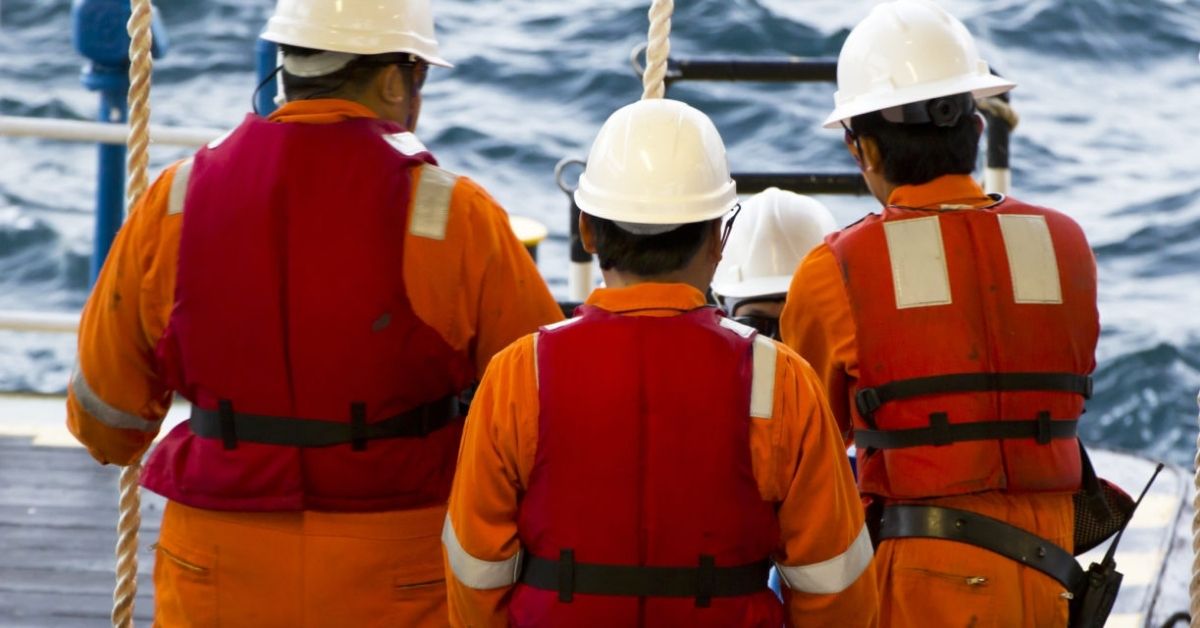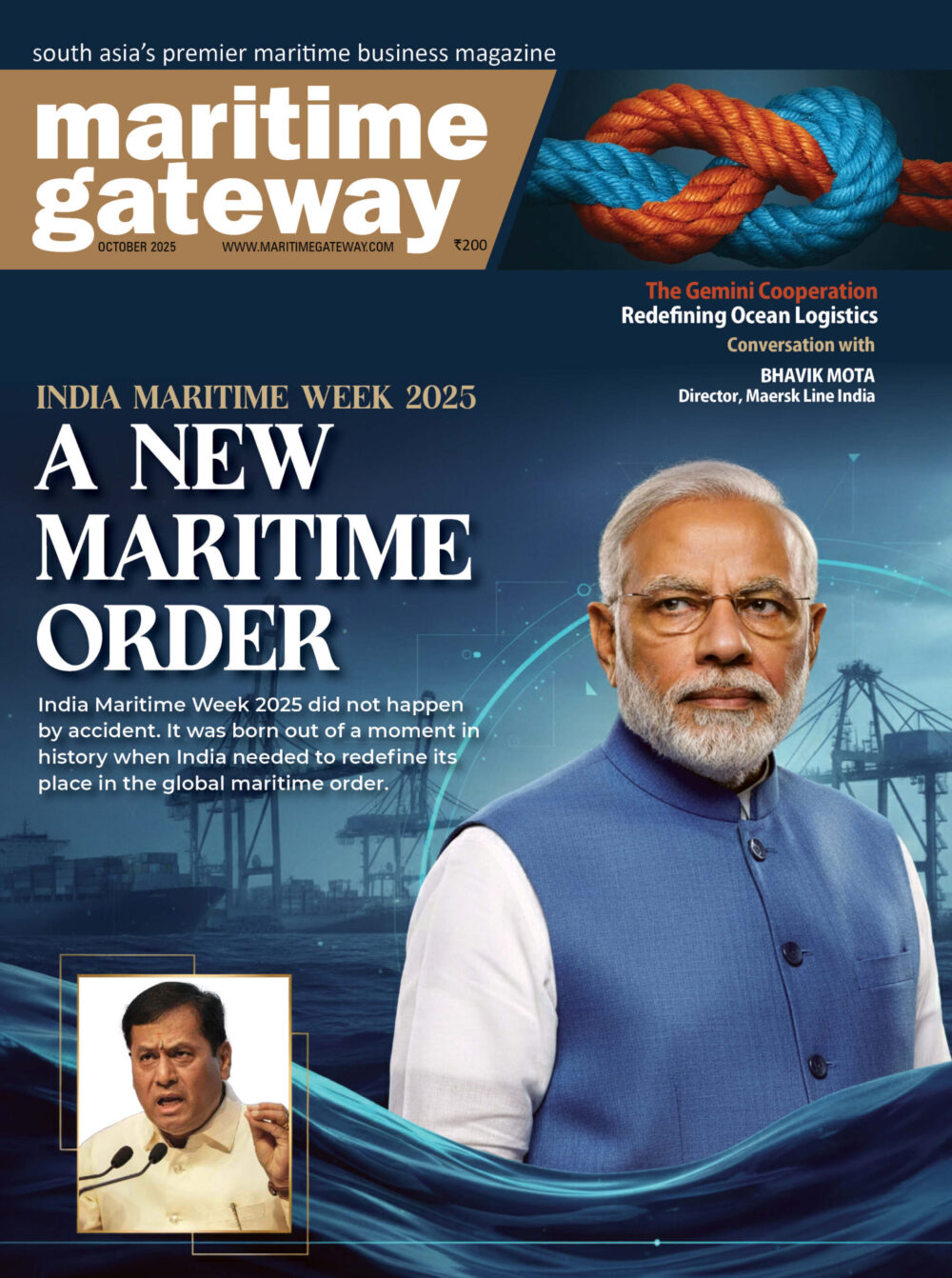In the wake of the pandemic, over 200,000 seafarers worldwide remain trapped on ships or are waiting for work. Many have been barred from entering ports due to virus restrictions, causing major disruption to international shipping lanes and the wellbeing of sea workers.
A crew change or changeover occurs at a port of call where a new batch of crew members arrive to replace outgoing crew who are nearing the end of their contracts.
Outgoing crew members usually will repatriate to their home countries and wait to sign onto a new vessel. Vessels also prefer crewmembers from their home countries due to communication and legal requirements.
COVID-19 and subsequent restrictions on international borders have made the process of switching crewmembers challenging. For instance, authorities in Singapore, Hong Kong and Dubai have placed heavier restrictions on ships entering their ports following spikes of COVID-19 in countries like India.
Virus Restrictions Disrupting Crew-Change Protocols
Stranded seafarers have been forced to extend their contracts and continue operating vessels. Some have worked onboard for over 17 months, far exceeding the 11-month limit mandated by international treaties.
The sluggish implementation of safe crew-change protocols by port authorities has impeded the disembarking and repatriation of the crew.
The International Maritime Organisation, the maritime labour arm of the United Nations, has raised red flags over the prolonged stress and fatigue of seafarers, which is also hindering their ability to work optimally and heightening the risks of maritime accidents.
This added to already existing hazards at sea, including harsh weather, piracy, and substandard vessels.
“Seafarers cannot remain at sea indefinitely,” said IMO Secretary-General Kitack Lim, urging nations to take swift actions that require a “whole of government” approach.
Lim urged governments to recognise seafarers as key workers and resolve crew change predicaments, which include travel and visa restrictions, flights availability to the port of calls and vaccination priority.
“Crew change is no longer as simple and easy as it used to be,” said Ramos, a Filipino seafaring cook who declined to use his real name for fear of reprisal.
“Half the day is gone when you complete your travel documents, transportation to-and-fro the port and accommodation, and crew-change procedures,” he told The Epoch Times.
“Sometimes, the seafarers also need to be routed over a series of connecting flights travelling halfway across the world to reach somewhere close by to their joining port,” Kochhar of A.P. Moller, a container logistics company, told the South China Morning Post.
“Even after reaching the port, the crew member has to follow varied COVID-19 protocols prior to entry to some countries.”
Virus Surge Causing Havoc for Indian Seafarers
Though the number of crew awaiting repatriation has halved from 400,000 last year, the increased travel bans on Indian crew and surging COVID cases in the Indian sub-continent could exacerbate the crisis and push it back to its 2020 peak, industry figures observed.
India, one of the world’s largest source of maritime workers, supplies 15 percent or some 240,000 of the world’s 1.6 million seafarers.
“About 14 percent of Indian seafarers have been vaccinated with at least a first dose. About one percent have been fully vaccinated,” the South China Morning Post reported.
Meanwhile, industry experts have been pushing for priority vaccination of Indian sailors as shipping employers opt to hire Filipino and Indonesian crew over Indians.
On May 31, India’s Maritime Association of Shipowners Shipmanagers and Agents (MASSA) announced a nationwide vaccination drive for Indian seafarers.
“We will kickstart our COVID vaccination initiative from Jun. 10 onwards and aim to inoculate at least 10,000 Indian seafarers with Covishield doses in Mumbai within a fortnight,” said Shiv Halbe, CEO of MASSA.
Albeit the 84-day wait between the first and second jab, industry experts said the move is timely for an industry that may soon require proof of vaccination for the crew.
‘No Crew-Change’ Clauses Violating Human Rights
Since last year, the International Maritime Organisation hit out at charterers demanding ‘no crew change’ clauses in their contracts. The clauses would allow ships to avoid visiting ports where crew changes normally occur, avoiding possible delays if a new member later tests positive to the virus.
In a statement denouncing the act, Secretary-General Lim told charterers to refrain from including such clauses in their charter contracts and urged ship operators to reject them.
Lim said the clauses would exacerbate the mental and physical fatigue of already-exhausted seafarers. It could further undermine compliance with maritime labour laws and put safe navigation at risk.
“It is especially disappointing to see cases of prominent ship charterers, including some who have publicly voiced support for seafarers, demanding the inclusion of ‘no-crew change’ clauses in their charter parties or voyage instructions,” according to Richard Hext, chairman of the ASA Ship Insurance and Liability Committee.
“Such clauses go against the human rights of seafarers and are in clear contravention of Owners’ responsibilities under MLC 2006 [Maritime Labour Convention 2006].”
On May 6, United Nations bodies published a checklist to help firms uphold their responsibilities to protect seafarers’ rights when engaging in shipping services. The Human Rights Due Diligence Tool also straightens out due diligence in fulfilling human rights obligations.
“For far too long, shipping has been a human rights blind spot for global brands,” Stephen Cotton, general-secretary of the International Transport Workers’ Federation, said in a statement. “Responsible companies in today’s world want to understand how they, or partners in their supply chains, might be violating human rights, even inadvertently.”
Sailors Still Trapped In Limbo
The 2021 Day of the Seafarer campaign is urging governments to recognise seafarers as key workers and ease travel restrictions for them to facilitate crew changes amid the pandemic.
While seafarers form the backbone of supply chains, delivering 80 percent of global supplies, few are aware of—with some turning a blind eye—to their plight.
After repatriation, many sailors remain grounded and unable to return to work.
“I want to continue working for as long as possible. I need the job to put food on the table, to feed my children and family. The situation now is bad, but I am prepared to sign on again; I hope I get a call soon,” Ramos added.
On the other side of the world, Filipino seamen Ralph Santillan, who has been stranded for 18 months off South Korea, told the New York Times he had to resist thinking about his family, “There’s nothing I can do. I have to leave to God whatever might happen here.”
“Missing someone is not allowed. For you to focus on work, you can’t think about them. Your body is heavier when you miss someone.”
Source: The Epoch Times









